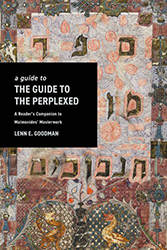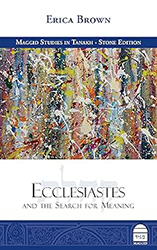For over two decades Rabbi Nina Beth Cardin has been a major leader in the Jewish Environmental movement. Her new book, To Forever Inhabit This Earth, is a capstone on her visionary focus on the seeing the issues of climate change and sustainability through a uniquely Jewish lens.
In a time when the current Federal Administration seeks to roll back recent laws and regulations to protect the earth and anathematize the words “climate” and “climate change”, to publish now harks back to an earlier time when the movement was top of mind and action. But looked at another way, this book resonates with those out of current power who know what is desperately needed for the long game of changing our behavior and protecting the planet.
This book weaves together both the larger issues to focus on and the practical ways we can make changes in our own lives in a particularly nuanced way.
The book is divided into seven chapters, perhaps to mirror the seven days of creation. The introductory chapter sets forth the need to protect and sustain the planet. Cardin’s ambition is to deepen Aldo Leopold’s groundbreaking concept of a “land ethic,” through a Jewish perspective, to articulate a Jewish land ethic.
In the second chapter, Rabbi Cardin eloquently develops the concept of Yishuv Ha’olam, preserving a habitable world, which she views as a mitzvah, indeed as one of the 613 commandments we are enjoined to do as Jews. Of the concept of Yishuv Ha’olam she writes, “there is never a time it cannot be pursued. It is implicated in all our acts and decisions for almost everything we do affects the natural world and thus life all around us.”
She follows with a brilliant reading of the first two chapters of Genesis, with Genesis 1 embodying the principle of Survivability and Genesis 2 inculcating an ethic of Sustainability. This is a model of how to read biblical text in a contemporary way and feels natural and unforced.
Chapter four is the most poetic of the book, “Holy Sparks.” Rabbi Cardin celebrates the holiness of the natural world in moving prose with both rabbinic and modern responses brought to our attention.
If Yishuv Ha ‘olam is the most important positive commandment, bal taschit, do not destroy, is the essential negative commandment for the environmental movement. Building on past commentary from Maimonides, through Sampson Raphael Hirsch to contemporary thinkers, she shows how this seemingly simple phrase can be enacted. Rabbi Cardin even creates a chart for us to show how on a practical level we can follow this simple commandment on a weekly basis in our daily lives.
For an ethic of enoughness, it is no surprise that biblical laws of shmittah are adapted in the penultimate chapter to challenge a culture of consumption,
In her last chapter — seven, just as God finds his creation good on the seventh day, Rabbi Cardin celebrates the planet we have and the gratitude we should feel for it. IRigorous, yet lyrical, lofty yet practical, To Forever Inhabit This Earth belongs on the bookshelves of those who cherish Jewish texts and the environment around us.
Josh Hanft holds Advanced Degrees in English and Comparative Literature from Columbia University and curated the renowned reading series, Scribblers on the Roof, for over twenty years.





